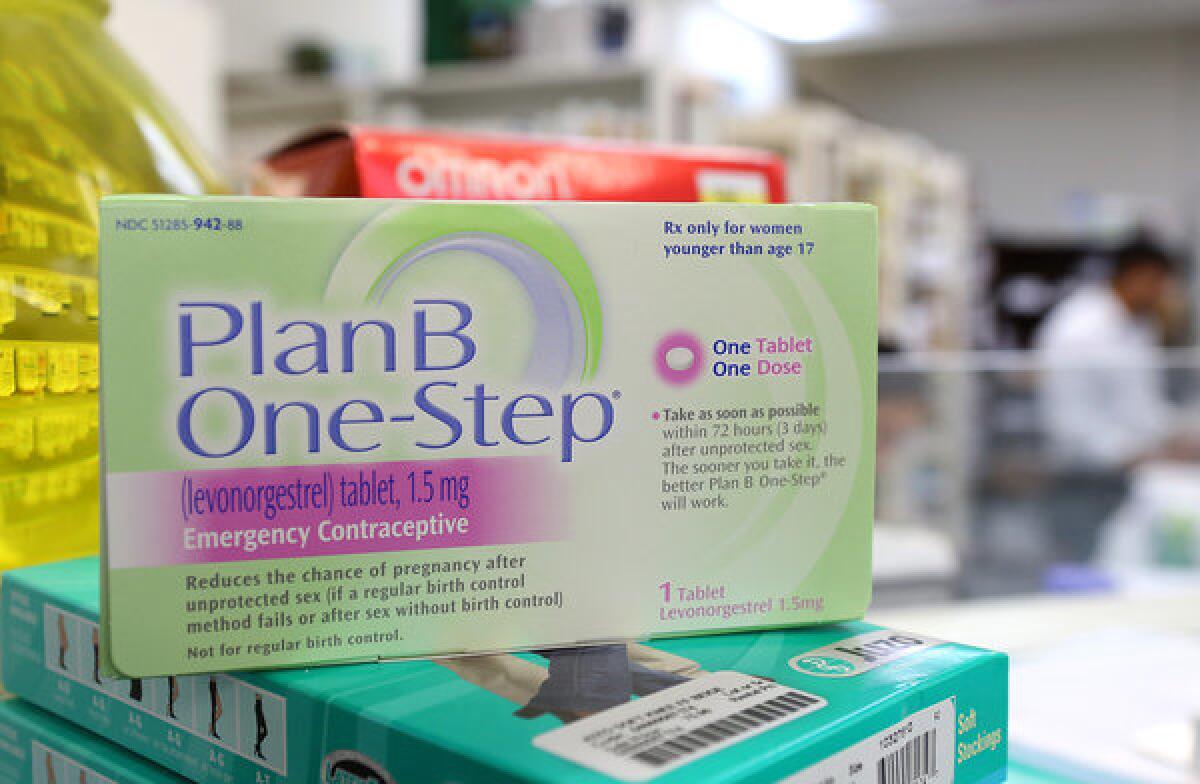Plan B emergency contraceptive pill battle: Confusion endures

It was hailed as a significant step forward in women’s reproductive rights, but this week’s decision by the Obama administration to allow non-prescription, over-the-counter sales of the emergency contraceptive Plan B One-Step may do little to dispel widespread bafflement over the issue, say medical and legal experts.
“There’s going to be confusion for a while,” said Kathleen Besinque, an emergency contraceptive expert and associate professor of pharmacology at USC.
Due to a series of separate actions by petitioners and the government, as well as legal appeals, the matter has been very difficult to follow.
“It’s been a real topic of conversation, and I know some of my students are quite unhappy about it,” Besinque said. “They know it’s something that’s going to come up on their exams, and they don’t know exactly how they’re supposed to answer.”
In papers filed in federal court in New York, government attorneys announced that the Food and Drug Administration and the Department of Health and Human Services would remove age and point-of-sale restrictions on the emergency contraceptive, pending approval by U.S. District Judge Edward Korman. Currently, the drug can be purchased without a prescription only if a customer is 15 or older and can show an ID.
The new proposal, however, does not apply to similar brands of emergency contraceptives or to a two-pill version of the same drug, which is manufactured by the Israel-based pharmaceutical firm Teva. Loretta Lynch, U.S. attorney for the Eastern District of New York, wrote in the court papers that other manufacturers could submit approval applications, but the FDA might grant Teva marketing exclusivity.
Legal observers expressed puzzlement over the government’s failure to include the other drugs in its decision and cited Korman’s earlier order to remove restrictions on all levonorgestrel-based emergency contraceptives. Korman’s order followed more than 12 years of debate on the topic of so-called morning-after pills.
“It’s backward,” said Lisa Heinzerling, a government regulation expert and law professor at Georgetown University. “It’s not what you would have expected given this whole line of events and given the government’s arguments. It’s very strange.”
Heinzerling has described the saga as a “long-running administrative law fiasco.”
On Wednesday, plaintiffs in the case filed papers urging Korman to reject the government’s proposal, claiming that it does not comply with the court order and restricts access to cheaper forms of the drug, such as the two-pill version called just Plan B.
“This is a drug for which every hour of delayed or burdened access risks more unintended or unwanted pregnancies,” the plaintiffs wrote in court papers. “The time for delay has been exhausted by the government.”
Plantiffs in the case, such as the Center for Reproductive Rights, have charged that the government unnecessarily restricts access to the emergency birth control.
In a memorandum issued late Wednesday, Korman questioned the government’s motivation for granting non-prescription status to just Plan B One-Step and urged the government to reconsider. However, the judge has not yet made a ruling on the proposal.
While law permits the FDA to grant a three-year exclusive marketing agreement to drug firms that fund and conduct studies that are deemed “essential,” Korman suggested that this wasn’t the case when it came to Plan B One-Step.
“Marketing exclusivity means that no other manufacturer will be permitted to market its products over-the-counter for three years” Korman wrote. “This confers a near-monopoly that will only result in making a one-pill emergency contraceptive more expensive and thus less accessible to many poor women.”
Korman also voiced frustration with the government’s delay in approving over-the-counter sales of a drug that “would be among the safest drugs available to children and adults.”
“The FDA, responding to unjustified political interference, delayed as long as it possibly could before it took even one incremental step in the process,” Korman wrote.
Any changes that are approved by the court and the FDA will require new labeling on drug packages, according to Besinque. Any old packages that do not contain the new labeling must be sold according to the old rules, however.
Also, individual pharmacies will have the discretion to display over-the-counter drugs on aisle shelves or keep them in locked cases. Many pharmacists might choose to keep Plan B One-Step, which retails for roughly $60, behind the pharmacy counter.
“This is a product that is more likely to be stolen,” Besinque said. “People might be embarrassed to buy it.”
Virginia Herold, executive officer of the California Board of Pharmacy, said a special notice on the status of the drugs would be issued to California pharmacists next month.
Even if the drug were eventually approved for sale without restriction, like aspirin, Herold said she expected pharmacists would continue to keep it behind the counter. “Most pharmacists are conservative by nature,” Herold said.
Return to Science Now blog.
Follow me on Twitter @montemorin







